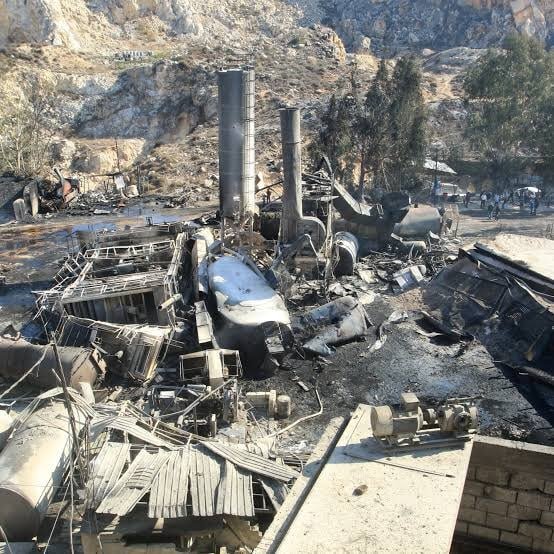Humanitarian act plus intelligence collusion: Yemen reveals other side of global bodies’ alleged ‘ne

BEIRUT—Yemen is currently witnessing an unprecedented confrontation with the UN and other international organizations, which are supposed to provide an umbrella for humanitarian and relief work, after some of them became intelligence tools operating against the country’s sovereignty and supreme interests.
The Ministry of Foreign Affairs in Sana’a sparked widespread controversy after revealing a spy network comprising employees of UNICEF and the World Food Programme, who were involved in providing hostile parties with sensitive information used to target leaders in the Yemeni state.
This scandal raised major questions about the nature of the role played by organizations in a country subjected to an ongoing siege and aggression for more than a decade.
In its latest statement, the Ministry of Foreign Affairs in the Sana’a government emphasized that the UN’s hasty denial of the charges before reviewing the evidence reflects nothing but the double standards that have become a hallmark of UN institutions.
The ministry stated that the Secretary-General should request access to the evidence Sana’a possesses before issuing denial statements that exonerate those previously implicated.
This position, which was understood in Yemen as a cover for suspicious intelligence activities, revealed a degree of international complicity against a country suffering from a devastating war and a stifling blockade.
Sana’a did not make its decision to halt cooperation with some organizations in vain, but rather after a series of security arrests of individuals proven to have leaked sensitive information to foreign intelligence agencies, primarily the American and Israeli ones.
Although more than 20 million Yemenis depend on international aid, the government in Sana’a affirms that the country’s security and sovereignty cannot be compromised or bartered under any humanitarian pretext.
In this context, the Ministry of Social Affairs and Labor plays a pivotal role in regulating the work of organizations and preventing them from deviating from their humanitarian path.
The ministry, in close coordination with the security services, has imposed strict oversight over the activities of international and local associations and organizations, ensuring that their efforts are focused on supporting the poor, people with disabilities, and those affected by the aggression, rather than serving the agendas of Western funders.
The former minister, martyr Samir Bajaala, contributed to building a disciplined humanitarian communication system with representatives of organizations, balancing the national interest with the imperatives of international cooperation.
He was a model of a humanitarian and national leader who dedicated his efforts, heart, and mind to serving the causes of the vulnerable and defending the rights of the poorest and most needy groups, including people with disabilities, poor and needy families.
According to official reports, some humanitarian projects have achieved tangible results over the past years, from distributing aid to 1.5 million families to funding relief programs worth more than five billion riyals.
However, this momentum declined after the escalation of the Yemeni position in support of the Palestinian people. Some funding agencies reduced their support and diverted it to other areas, a move that exposed the political nature of humanitarian funding and undermined claims of neutrality.
Sanaa asserts that the problem does not lie in the principle of cooperation with organizations, but rather in the transformation of some of them into soft arms for the implementation of intelligence and cultural policies targeting the structure of Yemeni society, by supporting projects that appear to be human rights or development-related, but that in reality violate national values and identity.
Despite their theoretical importance, programs such as “Women’s Empowerment,” “Youth Governance,” and “Community Participation” are sometimes used to promote falling values that conflict with Yemen’s cultural and religious identity and are exploited to shape public opinion in line with donors’ agendas.
That’s why the Yemeni Foreign Ministry called on the United Nations to review its policies and correct its internal imbalances, after some of its agencies became umbrellas for espionage operations and lost a significant portion of its international credibility.
It also warned that the continuation of this path would make the UN vulnerable to security and political infiltration by major powers seeking to undermine the independence of developing countries.
What is happening in Yemen today is not just a conflict between a government and organizations, but rather a test of the credibility of the entire UN system.
Now the major question is whether the UN is truly a protector of humanitarian action or a cover for expanding Western influence!
The reality on the ground confirms that many relief programs are now being used as a tool for political pressure, granted or withheld based on political positions.
Faced with this reality, Sana’a appears to have chosen sovereignty over dependency, affirming that a nation’s dignity cannot be bought with an aid package, and that those who hide behind humanitarian slogans to justify espionage are essentially no different from the aggressor waging aggression with weapons.
Leave a Comment